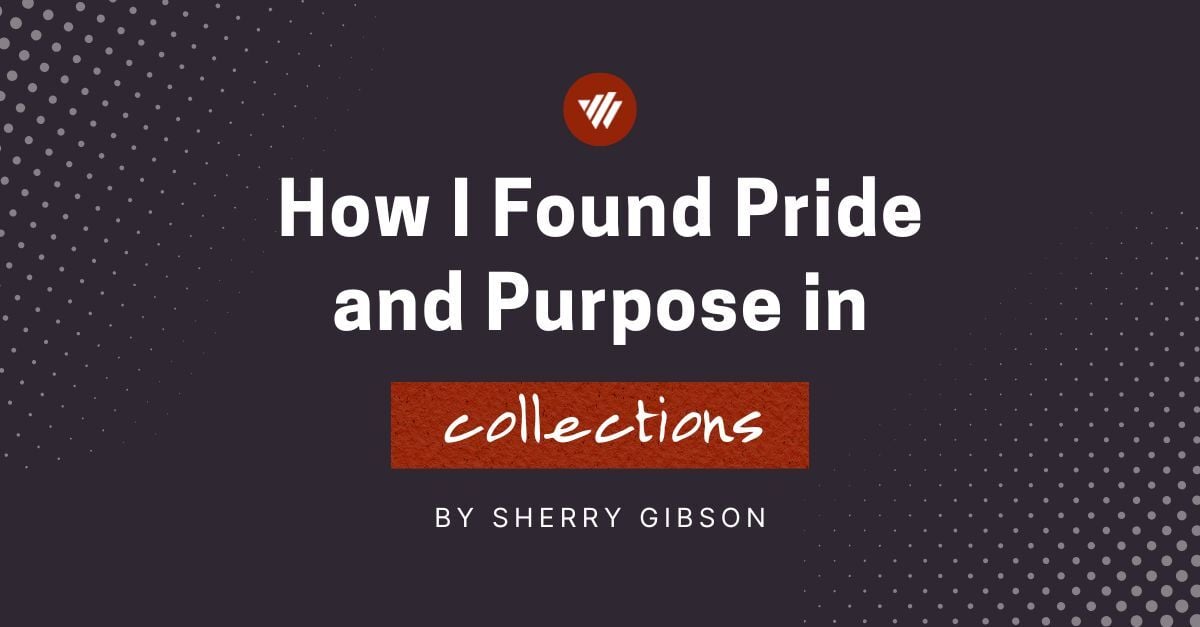Collections doesn’t always get the respect it deserves, even from those of us doing the work. In this piece, Sherry Gibson shares how she reframed her view of a role that's often misunderstood.
.png?width=373&height=373&name=Sherry%20Gibson%20(1).png)
For a long time, I struggled with what I did for a living. As my life changed, especially after losing people I loved and seeing my priorities shift, I started to ask myself whether my work really mattered. I wasn’t curing cancer. I wasn’t shaping young minds. I was, in the simplest terms, a bill collector.
That was a tough reality to accept.
But over time, I realized I had a choice. I could either keep feeling disconnected from my work or start looking at it through a different lens. I had a good job, and I was good at it. That mattered. But I wanted to feel proud of it, too.
Here’s what helped me reframe my work:
1. I reconnected with the purpose behind the role.
I started in collections in the late 1990s, working the phones as an agent. Eventually, I moved into leadership and began managing outsourced agency performance. As I progressed, I started thinking more about what I wanted my role to mean. Not just for me, but for the people on the other end of the line.
I asked myself who am I serving? What problem am I helping to solve? Sometimes we overlook the impact we’re having because it doesn’t match what society typically celebrates. But helping someone regain financial control is incredibly valuable.
2. I changed my language.
One of the most powerful things I did was shift the language we used. I stopped calling people “debtors” and started calling them “customers.” I replaced judgmental phrases with words that focused on support and resolution. I challenged my team to see the job not just as collecting debt, but as helping people find a way out of it. It wasn’t the norm at the time, but it changed how I saw the people I was calling and how my team saw them too.
3. I focused on leading with empathy.
Once we changed our perspective, we started seeing real impact. Many of the people we spoke to weren’t avoiding their bills. They were dealing with job losses, medical issues, or life changes they never planned for. They didn’t need someone to scold them. They needed someone who would listen, treat them with respect, and help them find a path forward.
You don’t have to change the entire system to make a difference. Sometimes, just showing up with compassion is enough to turn someone’s experience around.
4. I remain open and keep asking better questions.
This industry is always evolving. Don’t be afraid to challenge the way things have always been done. I’ve learned that more often than not, other people are asking the same questions. And sometimes, all it takes is one person to speak up and start shifting the conversation.
Looking back, I’m grateful I stayed in this field. And I love it. I love the collaboration between agencies, issuers, and debt buyers. I’ll continue to push for both better results and better treatment. Because when we do it right, we help people get back on track, and that’s something I’ll always be proud of.



-Nov-07-2023-06-38-17-8684-PM.png)